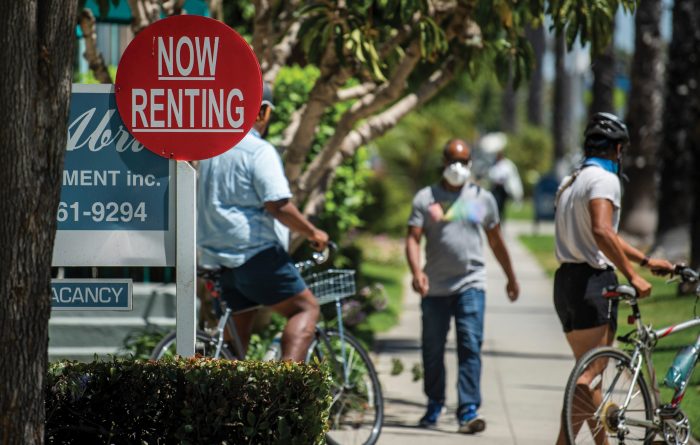With roughly 170 housing vouchers waiting to be used and many more families than that in need of homes, Long Beach has launched a renewed, more robust effort to find landlords willing to participate in the city’s voucher program.
Officials created a call center in the city’s Housing Authority where staffers reach out to property owners to explain the voucher program and related financial incentives, including $2,500 for each lease to a voucher holder. Mayor Rex Richardson invited landlords to a forum last week to learn about the program, and the city will hold information sessions over the next several months in the hope of connecting with even more housing owners and managers.
It’s all part of what Housing Authority Deputy Executive Director Alison King called “a significantly ramped-up, all-out battle cry” to get more Long Beach residents out of actual or potential homelessness and into stable housing.
For years the city has received federal funding for vouchers that cover rent costs for very low-income residents, but when the pandemic exacerbated the homelessness crisis, it was issued 582 new emergency vouchers.
More than 400 of those have been put to use since 2021, but finding property owners to rent to voucher-holders is an ongoing challenge.
Some had misconceptions about the program or worried about worst-case scenarios, such as if a tenant with severe mental illness caused more damage to their property than the program would reimburse.
In former Councilmember Suzie Price’s conversations with landlords, she said, she learned “they thought that the bureaucracy was such that it was inhibiting their desire to help if they could, and at the end of the day they felt they would be holding the bag if something fell through.”
And the pandemic-related eviction moratorium created a sort of Catch-22, Apartment Association California Southern Cities Executive Director John Edmond said.
If a tenant stopped paying their share of the subsidized rent, they could lose eligibility for the program. But since they couldn’t be evicted, landlords had to choose between accepting less than full rent and reporting the nonpayment—potentially receiving nothing.
The moratorium’s March 31 expiration could help change the equation, Edmond said.
“I think that maybe with the eviction moratorium (ending), because there’s that recourse that’s not provided right now, you might see an uptick in participation” in Long Beach’s voucher program, he said.
Price tackled misconceptions and concerns about the voucher program by holding a special workshop for property owners and managers in August where they could hear from landlords with positive experiences.
“I think it brought awareness to a lot of the small property owners as well as the large management companies that the city is putting a whole new focus on this and making an effort to be user friendly,” Price said.
It worked, and the mayor has picked up the torch. King said about 58 housing providers came to Richardson’s forum last week, and five of them agreed to list one of their units for voucher holders.
It may seem like the smallest of victories—with more families in need than vouchers, King said there are about 400 eligible residents searching for a place to use one of about 170 remaining vouchers—but it’s a way to ease owners into the program, and maybe they’ll decide to do more after their worst fears don’t come true.
“We are simply asking owners who have never participated in our program to just give us an opportunity to house one person in a place where they might not have otherwise accepted a voucher and see how that works,” KIng said.
An information session for property owners new to the voucher program is scheduled March 14. To sign up or get other details on the program, housing providers can call 562-570-5372 or visit longbeach.gov/haclb.

